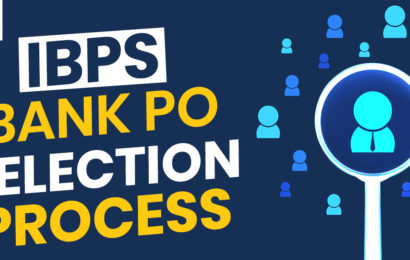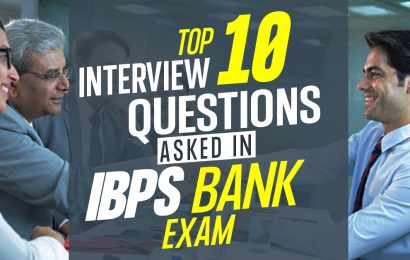The recruitment body for banks, IBPS (Institute of Banking Personnel Selection), has released the official notification for the clerical vacancies in the 11 PSU banks of India. With the release of the notification, the pressure on the applicants and new students has also been increased. A bank clerk is the most preferred choice in India’s banking sector after the PO; that is why lakhs of students participate in the examination to get a seat in the banks of their choice.
The clerical exam is most preferred by fresh graduates or those who want to see themselves as banking professionals. Every year the number of applicants for the clerical post is more than the PO because of more vacancies and less difficulty. Those who find the PO exam challenging to crack or have less preparation time in their hand prefer IBPS clerks over the IBPS PO.
The clerk exam pattern is almost the same as the PO exam but with the ease of no interview. Yes, you heard that right there is no interview round for all the applicants. All you have to do is qualify for the two stages, i.e., Prelims, Mains, and Language proficiency test. The selection process starts with the official recruitment notification from IBPS and ends at the provisional allotment of the banks. The detailed procedure is given below:
IBPS Clerk Exam Pattern
As discussed above, the Clerk exam consists of three stages, i.e., Pre, Mains, and Language proficiency test. The first stage is the online-based preliminary test which again consists of 3 sections with 100 questions that counts to 100 marks. There is also a provision of negative for each wrong answer, i.e., 0.25 mark will be deducted for an incorrect answer. You can refer to the table below for preliminary examination:
| S. No. | Sections | No. of Questions | Allotted Marks | Maximum Time Duration |
| 1 | English Language | 30 | 30 | 20 Minutes |
| 2 | Numerical Ability | 35 | 35 | 20 Minutes |
| 3 | Reasoning Ability | 35 | 35 | 20 Minutes |
| Total | 3 | 100 | 100 | 60 Minutes |
The mains examination for IBPS PO is designed differently. It is the opposite of prelims, where your basic understanding of various subjects is evaluated, but in-depth knowledge is required to qualify for the mains examination. This stage has four sections to tackle that consist of 190 total questions, 200 total marks, and 160 total minutes. You can refer to the table below to understand the pattern easily:
| S. No. | Sections | No. of Questions | Allotted Marks | Maximum TIme Duration |
| 1 | Reasoning Ability and Computer Aptitude | 50 | 60 | 45 Minutes |
| 2 | English Language | 40 | 40 | 35 Minutes |
| 3 | Quantitative Aptitude | 50 | 50 | 45 Minutes |
| 4 | General and Financial Awareness | 50 | 50 | 35 Minutes |
| Total | 190 | 200 | 160 Minutes |
Negative marking is also there in the mains exam, similar to the Prelims. 0.25 Mark will be deducted for each wrong tick. The final merit list will be made according to performance in the mains examination. Candidates must qualify for the second phase to be eligible for the final selection.
After the Mains examination, there is another hurdle of LPT (Language Proficiency Test). The objective of this test is to check the proficiency of a candidate in the local language (the language of the state). The recruitment body asks you to write a passage in the local language or ask a few questions about anything in the local language. If candidates cannot pass the LPT, they may face candidature cancellation by the bank.
Salary after clearing the IBPS Clerk exam
While working as a clerk in any of the banks associated with IBPS, you are entitled to get a salary between 19,000 to 29,000 per month after all deductions. You will also get additional perks like medical allowance, travel allowance, etc., with a handsome salary.
Eligibility for IBPS PO
IBPS has laid down some mandatory conditions for all the aspirants applying for the PO examination.
Age limit:
20-28 Years (Age relaxation of upper age limit of 5 years for SC, ST, Persons affected by 1984 Riots and Ex-army personnel and 3 years for OBC non-creamy layer and 10 years for PwD (Persons with Disabilities) is also allotted by the IBPS.)
Nationality:
- A Citizen of India or
- A Subject of Nepal or
- A Subject of Bhutan or
- A Tibetan Refugee who came to India before January 1, 1962, to permanently settle in India or a person of Indian origin who migrated from Pakistan, Burma, Sri Lanka, East African countries of Kenya, Uganda, the United Republic of Tanzania (formerly Tanganyika and Zanzibar), Zambia, Malawi, Zaire, Ethiopia, and Vietnam to permanently settle in India.
Note: Candidates from the 2, 3, and 4th categories must produce an eligibility certificate issued by the government of India whenever asked by the IBPS.
Educational Qualification:
Graduation is a must in any stream from a UGC-recognized university. (Fractions of percentage will be ignored, e.g., 49.99 will be considered less than 50% and not the actual 50%). Apart from the educational qualification, the candidates need to have computer literacy with a recognized certificate or diploma in computer proficiency.
Things to keep in mind while applying for IBPS PO
- Candidates in the final year of graduation are not allowed to sit for the examination.
- The preliminary examination is a qualifying paper, i.e., marks obtained in this section will not be included in the final merit list.
- Candidates should qualify for stage 2 ( Mains) and 3 (LPT) separately for the final merit list.
- Application fee of 850 is applicable for General and OBC category applicants, whereas, for SC/ST/PwD candidates, it is 175 rupees.
- There is a provision for pre-exam training sessions for SC/ST and minority applicants where expert guidance is provided to minimize the exam mistakes, and it is free of cost. Still, candidates have to bear the other expenses like travel, food, and accommodation. You can opt for the training while filling up the form.
Also Read: How to prepare for IBPS Exam, RBI Exams – Full proof plan
FAQs
Question: Who conducts IBPS Bank Clerk?
Answer: IBPS (Institute of Banking Personnel Selection) conducts the Clerk exam every year with the help of 11 PSU banks.
Question: Who is eligible for IBPS?
Answer: Any graduate applicant who completes the age of 20 and is a resident of India is eligible for IBPS Clerk.
Question: What is the eligibility for IBPS Exam?
Answer: The candidate must be 20 years old at the time of writing the exam. They must possess a graduate degree from a UGC-recognized university and be under 28 years of age.
Question: How many attempts do you get to clear IBPS?
Answer: There is no limit for the attempts. You can write this examination as many times as you want until you hit the upper age limit.
Question: Can anyone apply for IBPS?
Answer: Yes, anyone with a recognized graduate degree and a government-approved ID can apply for the IBPS Clerk exam.


